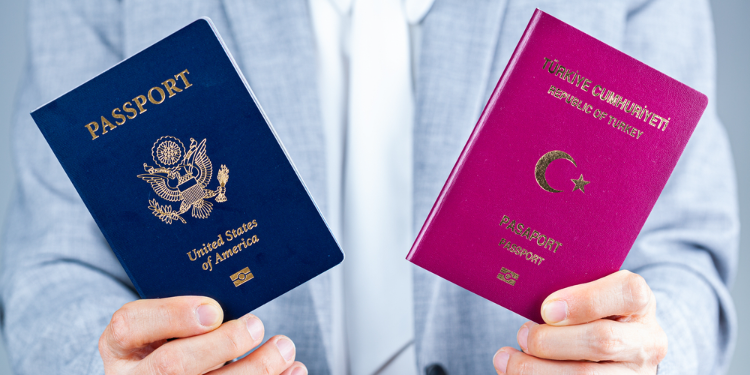
Can dual nationality address the labor shortage? That's the question on the German government's mind. Meanwhile, the Netherlands is considering reforming its citizenship laws. What benefits come with having dual nationality?
Netherlands: towards a reform of the law on dual nationality
Currently, the Netherlands doesn't recognize dual nationality. Dutch citizens are required to give up their nationality to acquire another, and the same applies to foreign nationals seeking Dutch citizenship. The Dutch system, one of the strictest in Europe, allows dual nationality only in exceptional circumstances, such as when the country of origin doesn't allow renunciation of its nationality.
The problem of stigmatizing dual nationals, criticized by opponents of the current system for years, has resurfaced in the political debate. The centrist party D66 and the left-wing coalition GroenLinks-PvdA are joining forces on this matter. According to both parties, it is not only an economic necessity but also a cultural imperative. They argue that compelling dual nationals to pick one nationality over the other undermines other countries' cultural diversity and richness. This stance is seen as unsustainable by proponents of dual nationality, especially at a time when the country is seeking to attract foreign talent.
In October, D66 and GroenLinks-PvdA introduced a bill to ease restrictions on dual nationality. Under this bill, Dutch citizens and foreign nationals would no longer be required to give up their nationality to obtain another. The debates were scheduled to take place after the November 22 election. However, the unexpected victory of the far-right Freedom Party (PVV), led by Geert Wilders and fiercely opposed to dual nationality, has complicated matters. Now, the challenge is to form a majority coalition for governance, a daunting task for Wilders as he has faced repeated rejections so far.
Germany considers dual nationality to attract foreign talent
Promoting immigration through dual nationality has become a goal for the Scholz government this summer while immigration law reforms are being implemented. Fulfilling a campaign promise, Germany, much like the Netherlands, is among the few European nations not widely recognizing dual nationality. On August 23, 2023, the government approved a proposed amendment to the nationality code, aiming to simplify the process of acquiring German citizenship. Under the revision, non-European nationals will no longer be required to renounce their original nationality to gain German citizenship. Historically, dual nationality has been allowed for EU citizens but not extended to non-EU citizens.
The proposed legislation, dubbed "turbo naturalization" by the German media, will not only focus on dual nationality but also aims to reduce the time required to obtain German citizenship. Currently set at 8 years of residence (with a loss of nationality), the reform, if approved, will shorten this period to 5 years and even to 3 years in exceptional cases. The government views allowing dual nationality as crucial, arguing that Germany should align with "the majority of European countries" on this issue. Additionally, it is seen as a means to remobilize its left-wing coalition. Predictably, the far-right and Germany's Christian Democratic Union (CDU) oppose the project. However, the reform, a campaign commitment, is also seen as an economic necessity as labor shortages are impacting the German economy, and the country hopes to attract foreign talent through the option of dual nationality.
What are the benefits of dual nationality?
Australia, Philippines, South Africa, Ireland, United States, Nigeria, Finland, New Zealand, France, Algeria, Canada, United Kingdom, Malawi, Jamaica, Belgium, and Brazil are some of the countries that recognize dual nationality.
One significant benefit of dual nationality is it confers rights to its holders in two countries. This facilitates travel, enhancing mobility and access to visa exemptions in both nations for those holding two passports. As citizens of two countries, individuals with dual nationality can engage in work, establish residency in both places (dual residency), and actively participate in the political affairs of either nation. They also have the opportunity to benefit from social advantages provided by both countries and establish businesses more efficiently. However, it's important to note that not all aspects are automatic, and the specific rules and regulations can vary from one country to another.
Rights come with responsibilities, and in the context of dual residence, it's important to be cautious about potential double taxation. While many countries have established tax treaties to prevent such situations, it's advisable to assess your situation precisely. As citizens of two countries, individuals with dual nationality must adhere to the laws of both nations.




















Comments
2I think attracting foreign workers is MUCH more an issue of pay levels and ease of getting a work visa; rarely whether one can eventually get dual citizenship - and how quickly. In the meantime lots of people that are hardly integrated into the German society and not even necessarily working are to be given a shorter pathway to citizenship. I think this causes as many problems as it is intended to solve.
If you have dual nationapity, one British, does this enable the 90 days european to be extended to 180 by leaving and returning on a different passport